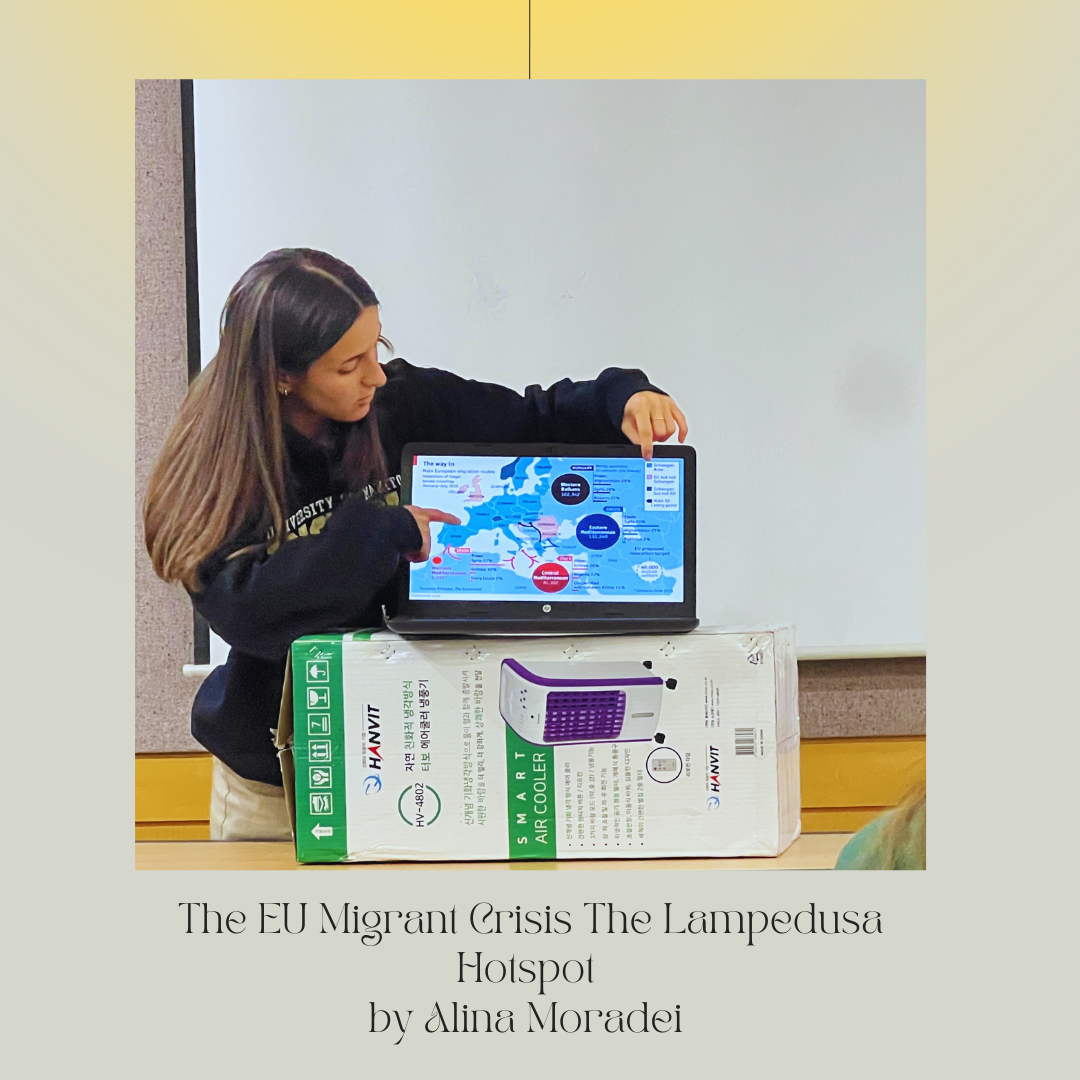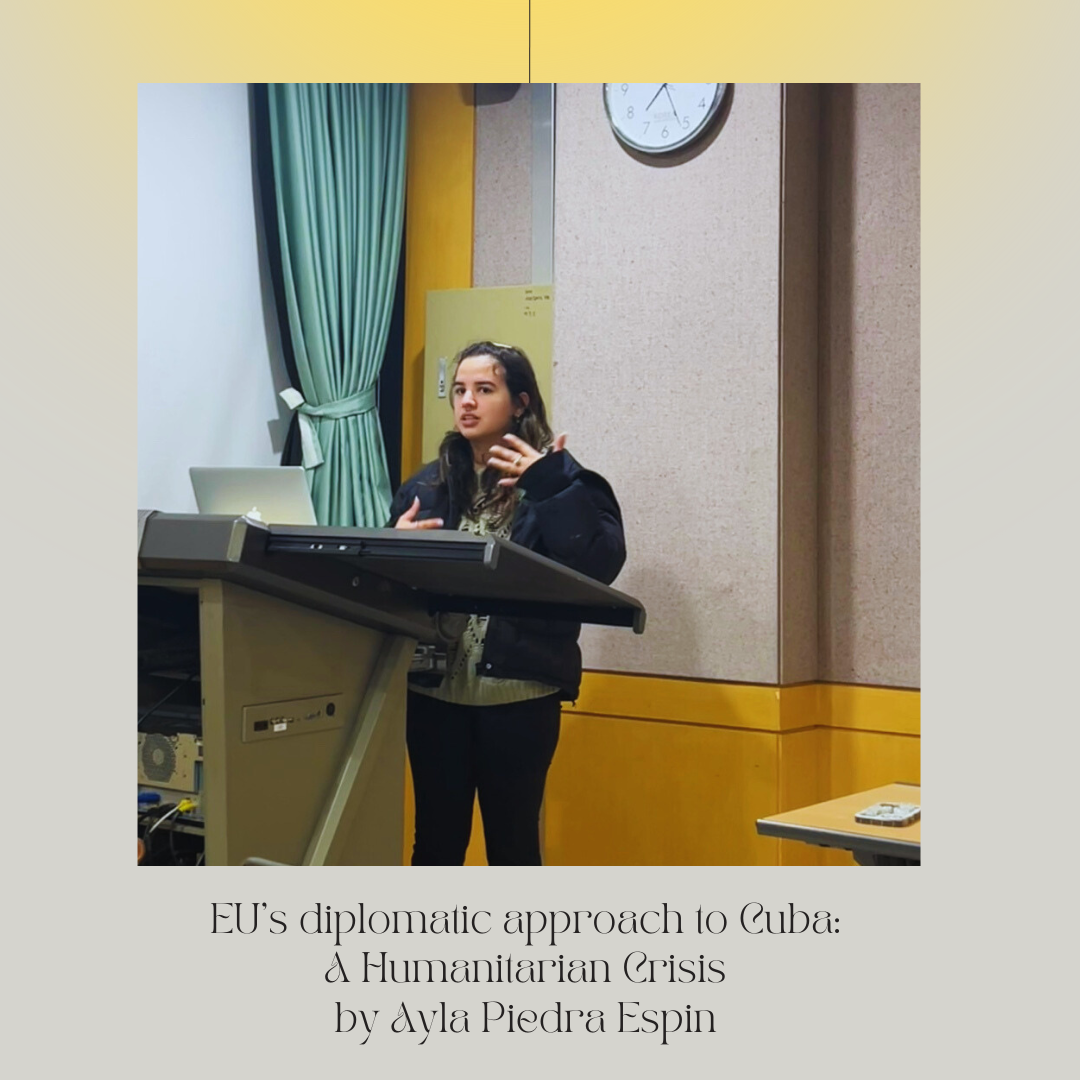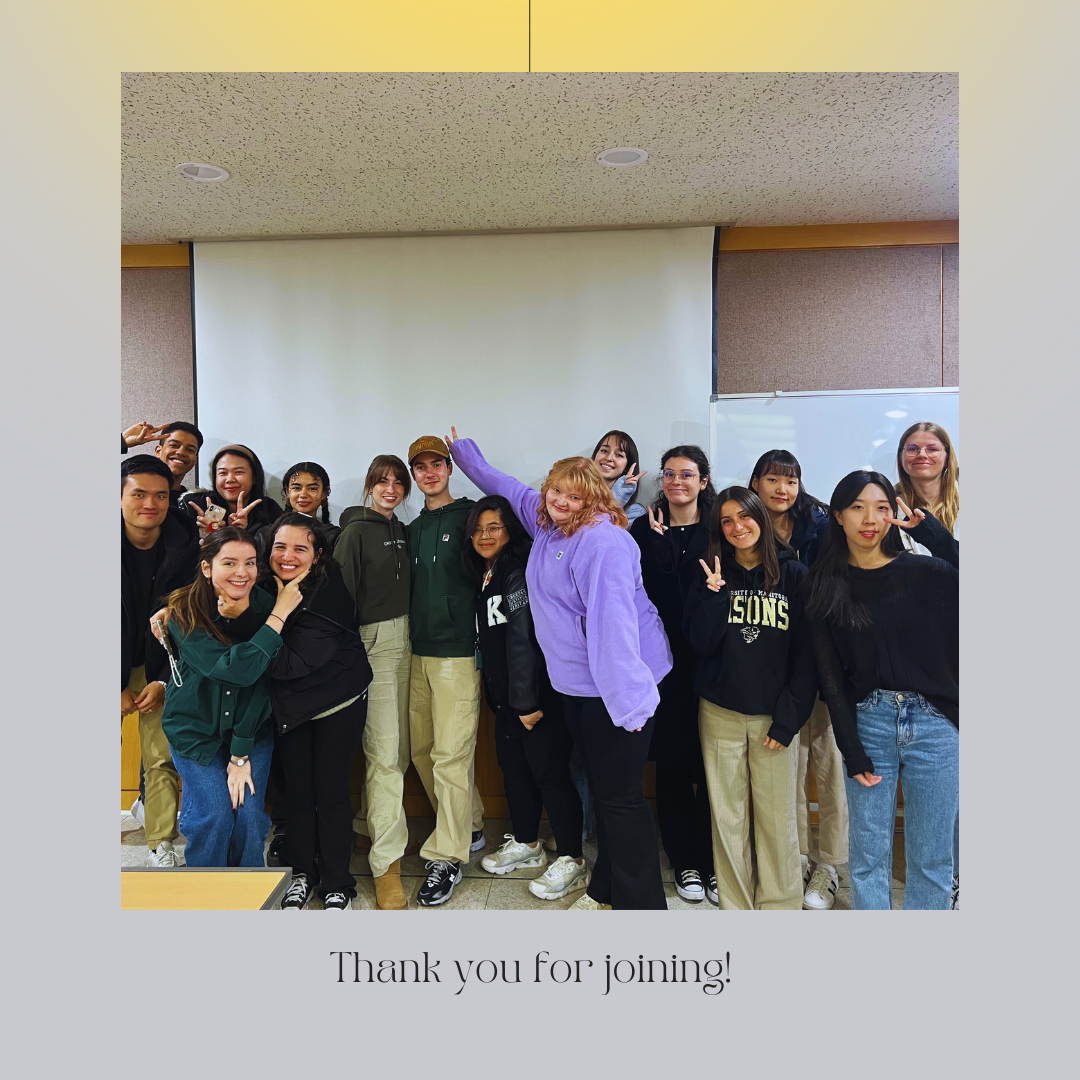2023-2 EU Society 7th Session (Nov 21, 2023)
페이지 정보

본문
The Seventh Session of the EU Society started, unfortunately, with a minor equipment disfunction - the projector in our meeting room wasn’t working, so the presenters had to find a creative way to display their presentations to the other members - presenters were showing their presentations on their laptops, but the rest of the members were also following the presentations on their devices (mobiles, tablets and laptops).

First to present was Alina Moradei with her presentation on the topic "The EU Migrant Crisis - The Lampedusa Hotspot". In her presentation, Alina highlighted the various migration routes and the 2015 surge in illegal crossings into the EU, particularly through the Mediterranean, reaching over 1.8 million. This influx, mainly attributed to the Syrian Crisis, conflicts in Somalia and Eritrea, reduced transportation costs, and Libya's state collapse, emphasized Europe as the only viable option for migrants. Post-pandemic measures saw a 66% increase in irregular border crossings in 2022. EU policies on migration, including the requirement to accept migrants for asylum, were discussed. Efforts to reform the asylum system in 2016 and the 2020 New Pact on Migration and Asylum demonstrated the EU's attempts to address the crisis. However, challenges persisted, notably the strain placed on Italy and Greece, resulting in failed talks. The 2023 negotiation to revise the Regulation on Asylum and Migration Management aims to conclude by 2024. The focus then shifted to Lampedusa, the Italian island deemed "The Gateway to Europe." Many members found it very interesting that the island of Lampedusa had more of a geographical proximity to Africa than to Europe! Lampedusa faced a substantial surge in migrants, hosting over 8,500 asylum seekers since 2023, surpassing its local population. The Lampedusa Hotspot was established in 2015 to rapidly process arrivals, yet issues of overcrowding, inadequate healthcare, unclear migrant classification, human rights violations, tensions between migrants and authorities, and the strain on the local population were observed.
The following discussion was started by two main questions: 1) What security concerns do European countries have regarding the migrant crisis, and how are they addressing them an 2) Considering its multiple issues how do you think the hotspot in Lampedusa could be improved? Discussion centered on European countries' security concerns regarding the migrant crisis and potential improvements for the Lampedusa hotspot. Many students were very vocal about their concerns about human trafficking of migrants, lack of integration leading to negative perceptions of immigrants, and instances of racism towards non-Europeans. These were highlighted as critical issues demanding attention and solutions.

Second presentation by Ayla Piedra Espin “EU’s Diplomatic Approach to Cuba: A Humanitarian Crisis” underscored Cuba's historical timeline, from colonization to its evolution into a socio-political sphere influenced by the United States. The Castro-led revolution shifted Cuba away from a liberal economic model, resulting in prolonged economic hardship. Recent political demonstrations in Cuba, supported by EU members, brought attention to human rights concerns. Especially interesting was learning about the EU-Cuba Political Dialogue and Cooperation Agreement (PDCA) established in 2016 aimed to promote democracy and human rights. However, calls for sanctions against Cuba by EU parliament members following political convictions without due process raised questions about the effectiveness of such measures. The EU's response in 2022 urged Cuba to protect dissenting voices and highlighted concerns about due process.
The ensuing discussion initiated the following question: Given the United States' current embargo, would EU sanctions on Cuba promote protections on human rights? Many of the students agreed that the EU sanctions would only further demote protection of human rights in Cuba. Something, which would make poverty levels even worse and lead to complete demolition of human rights.
After the two insightful presentations and discussion all of the members were invited to have dinner together.

- 이전글2023-2 EU Society 8th Session (Nov 28, 2023) 23.12.04
- 다음글2023-2 EU Society 6th Session (Nov 14, 2023) 23.12.04
댓글목록
등록된 댓글이 없습니다.










